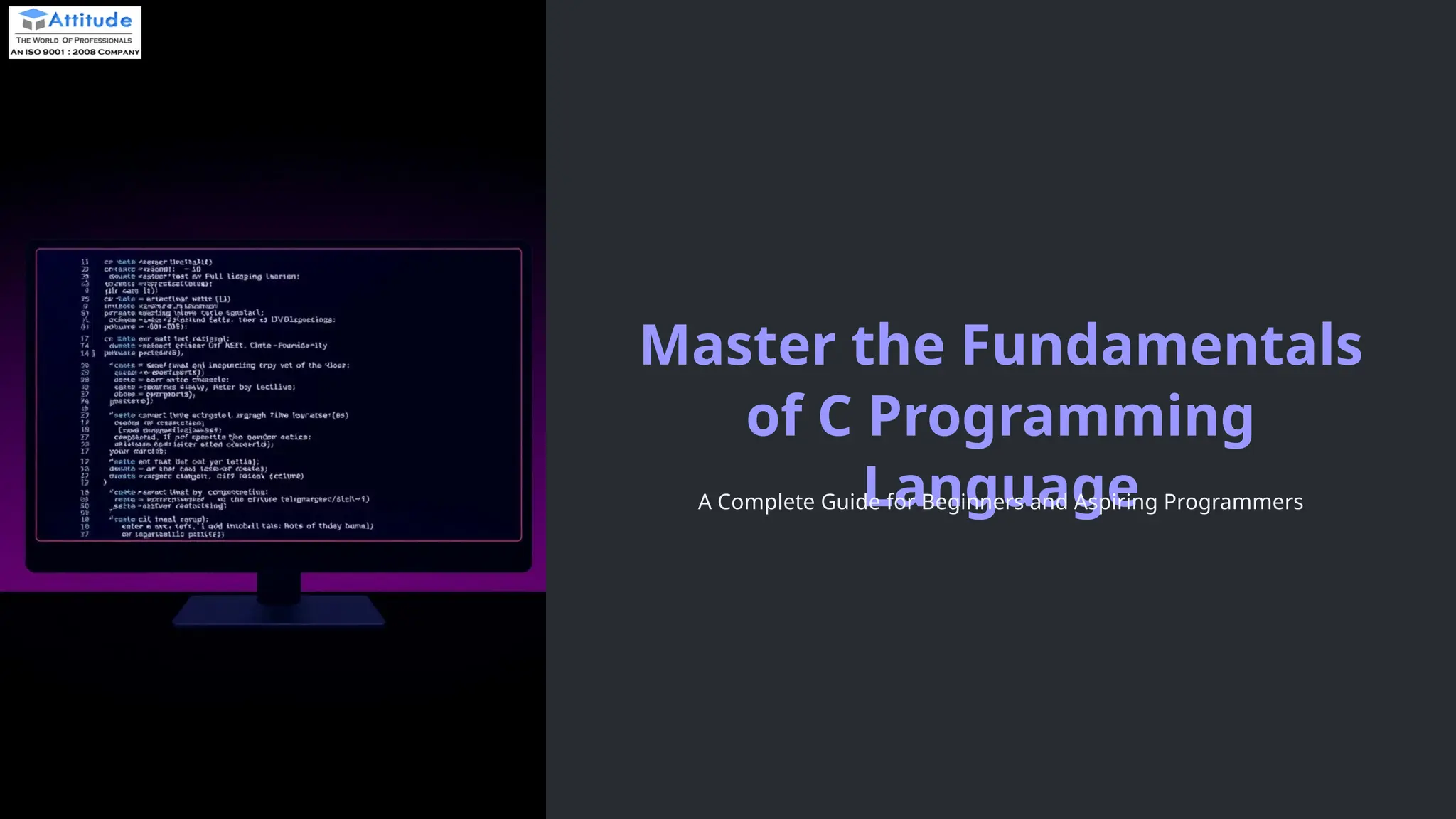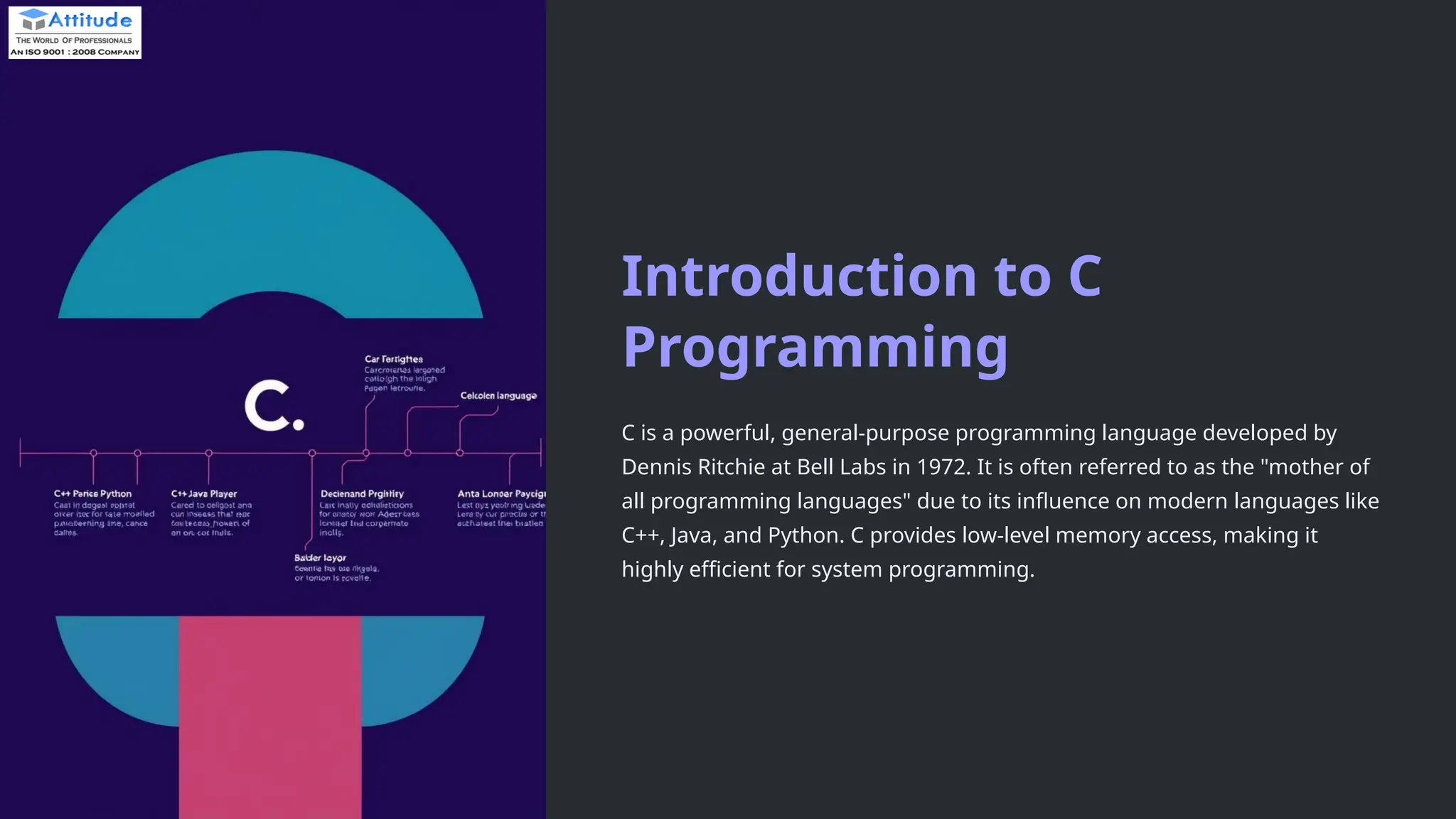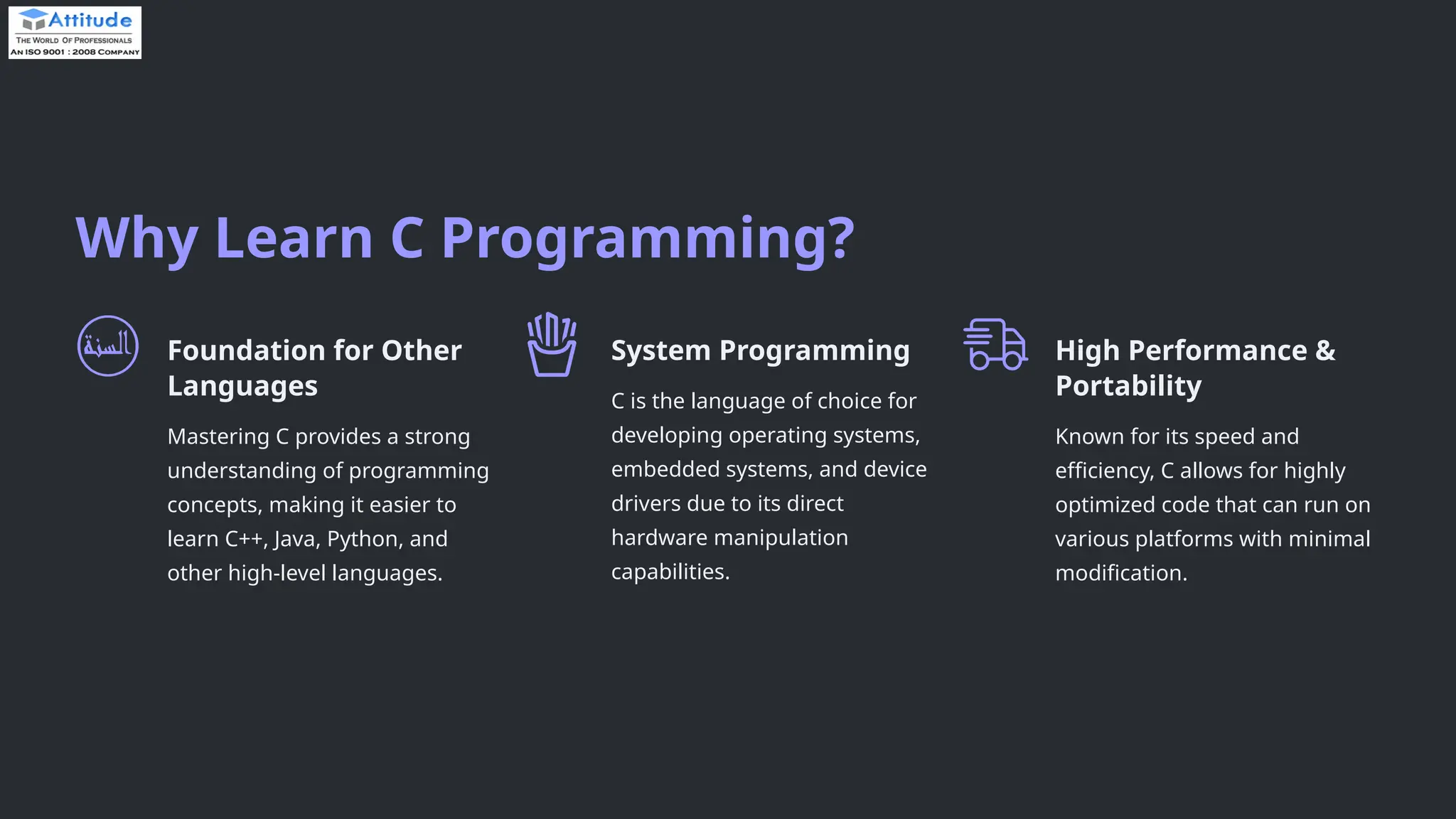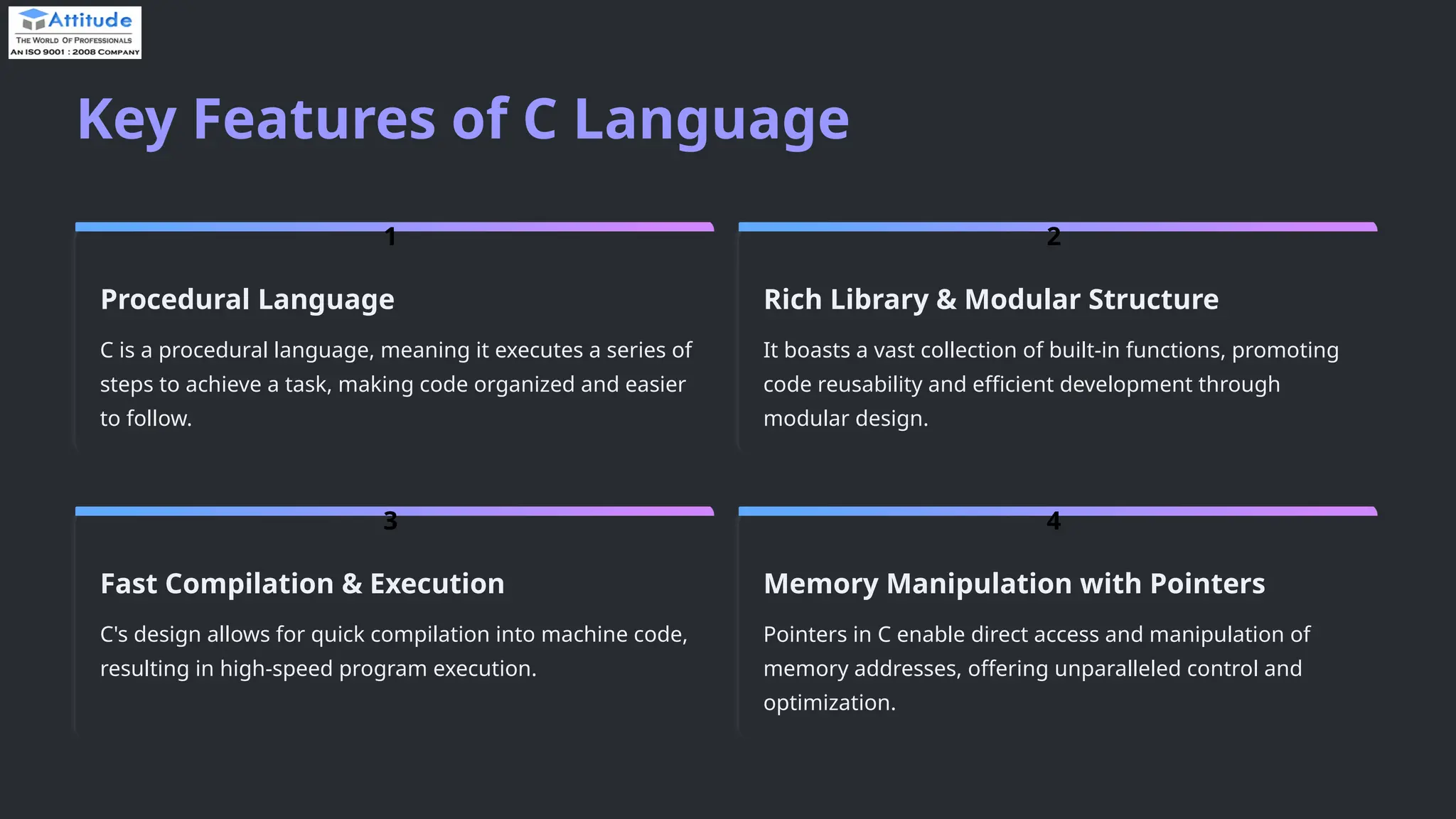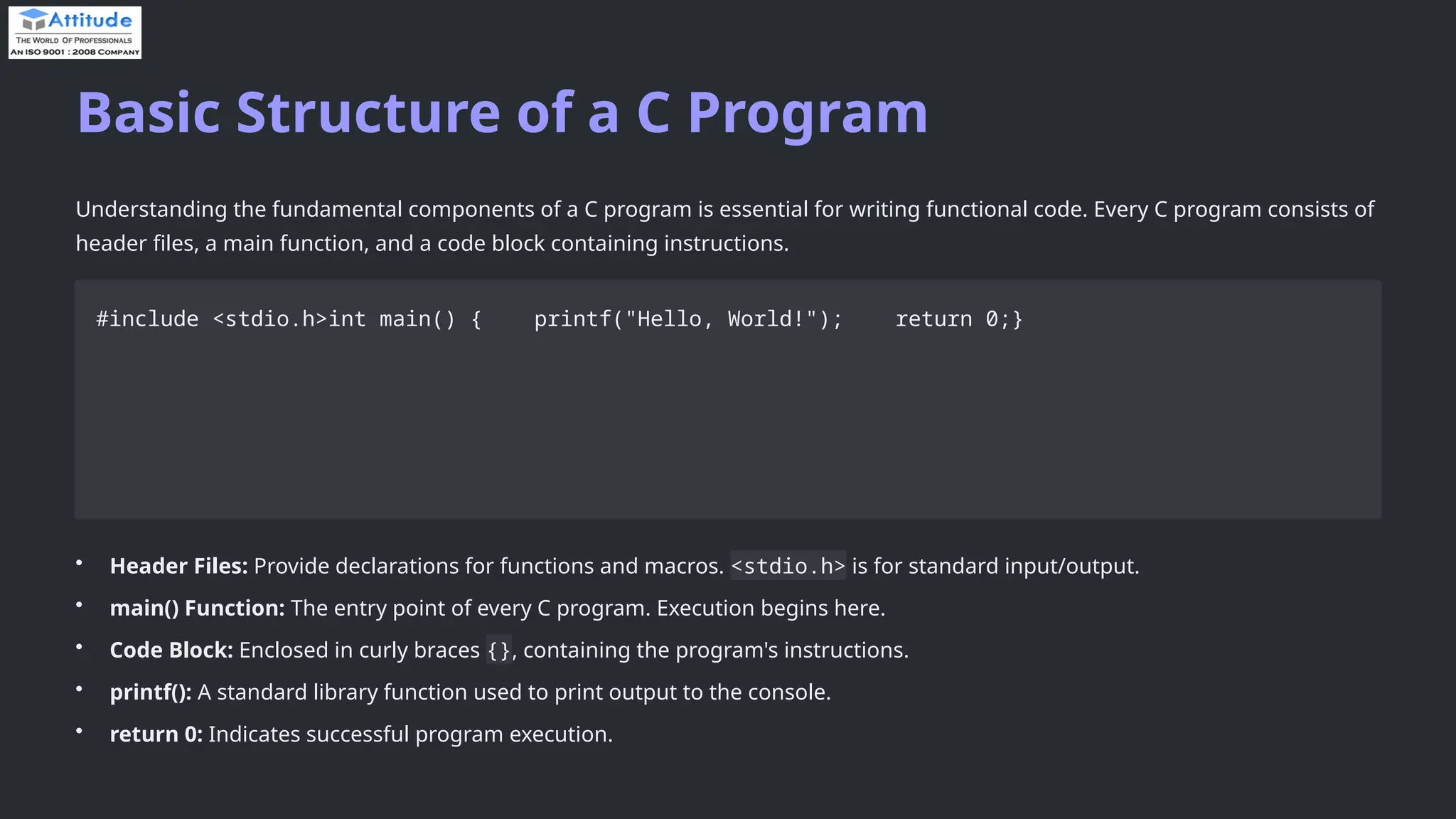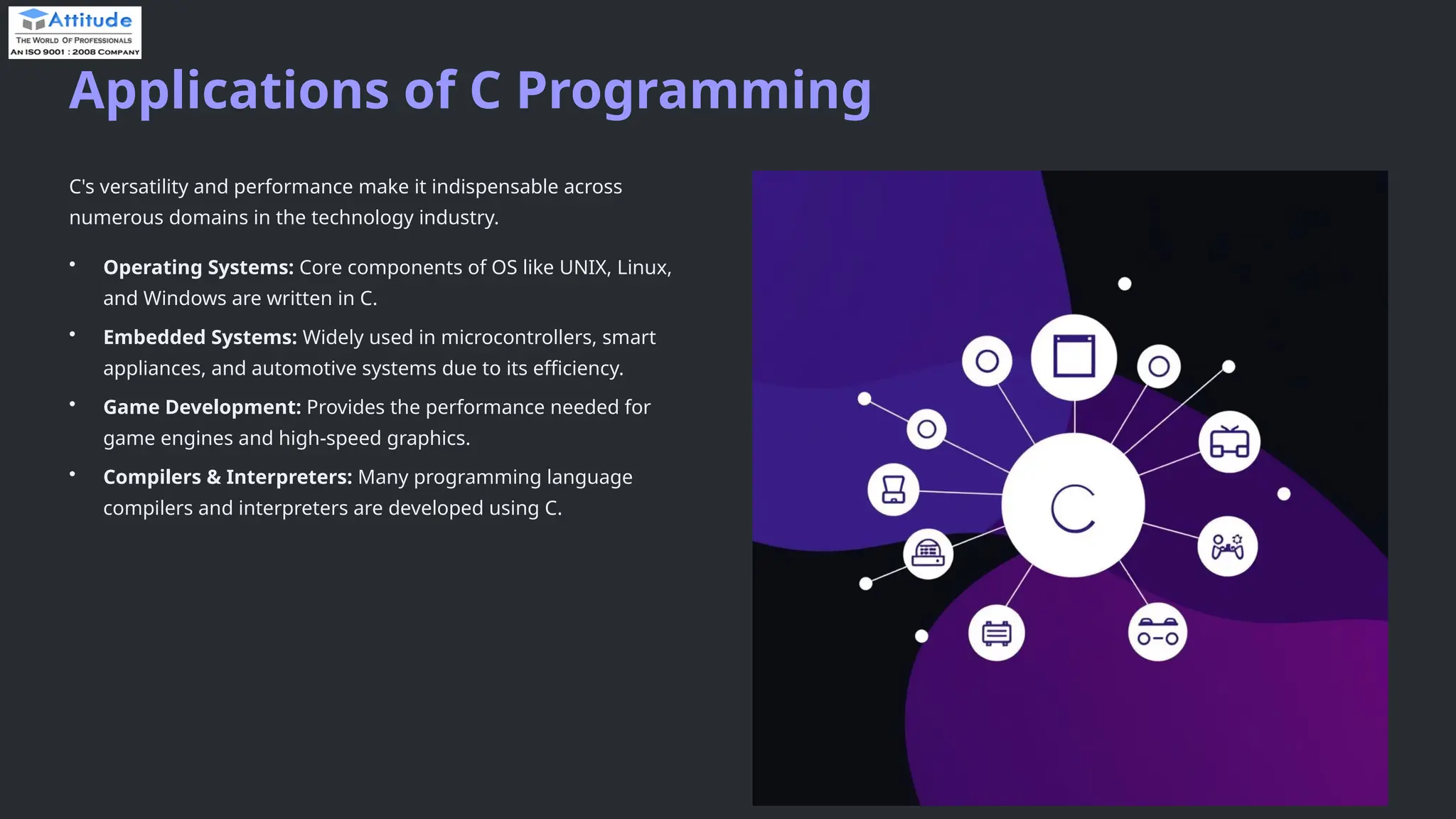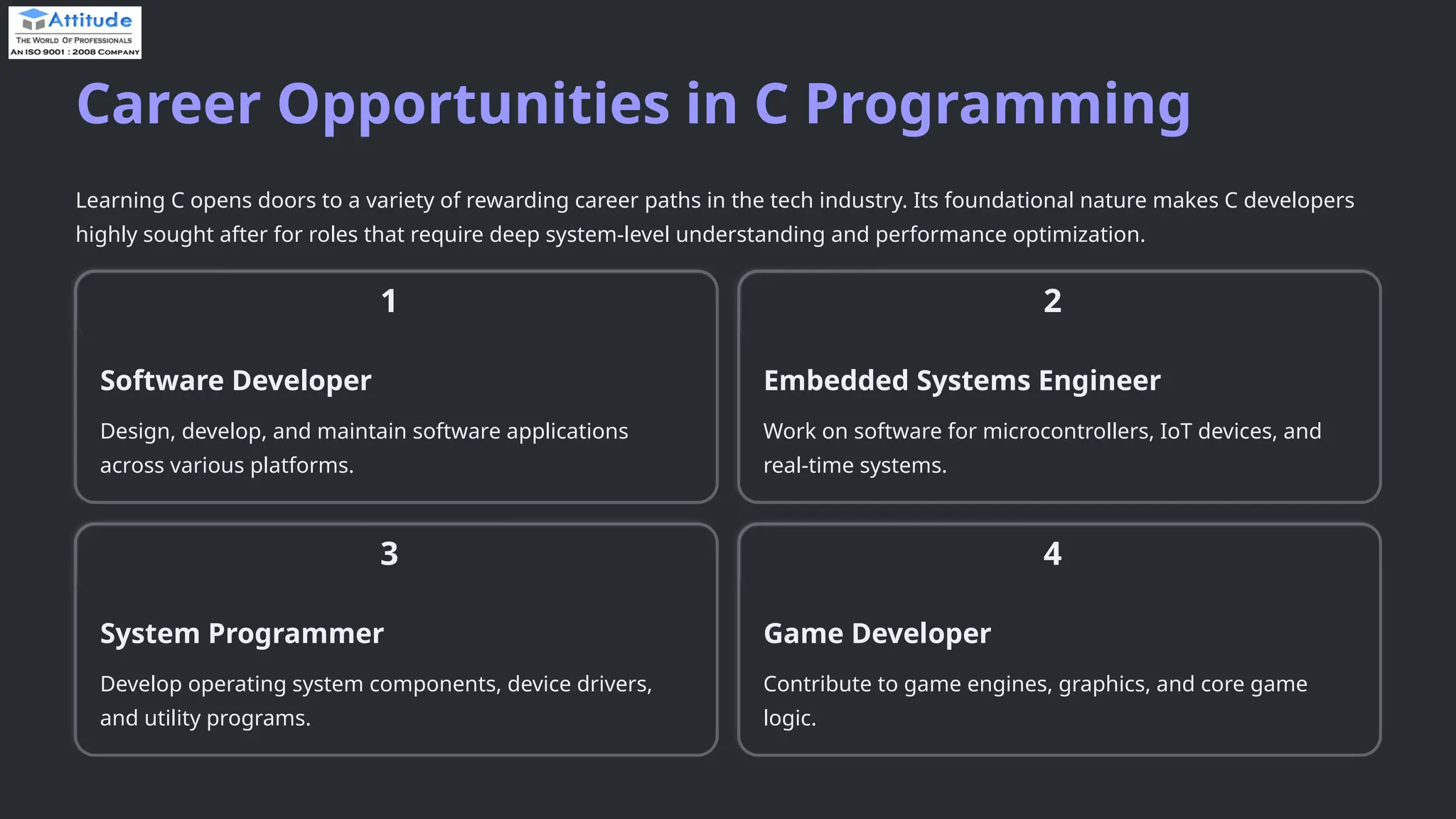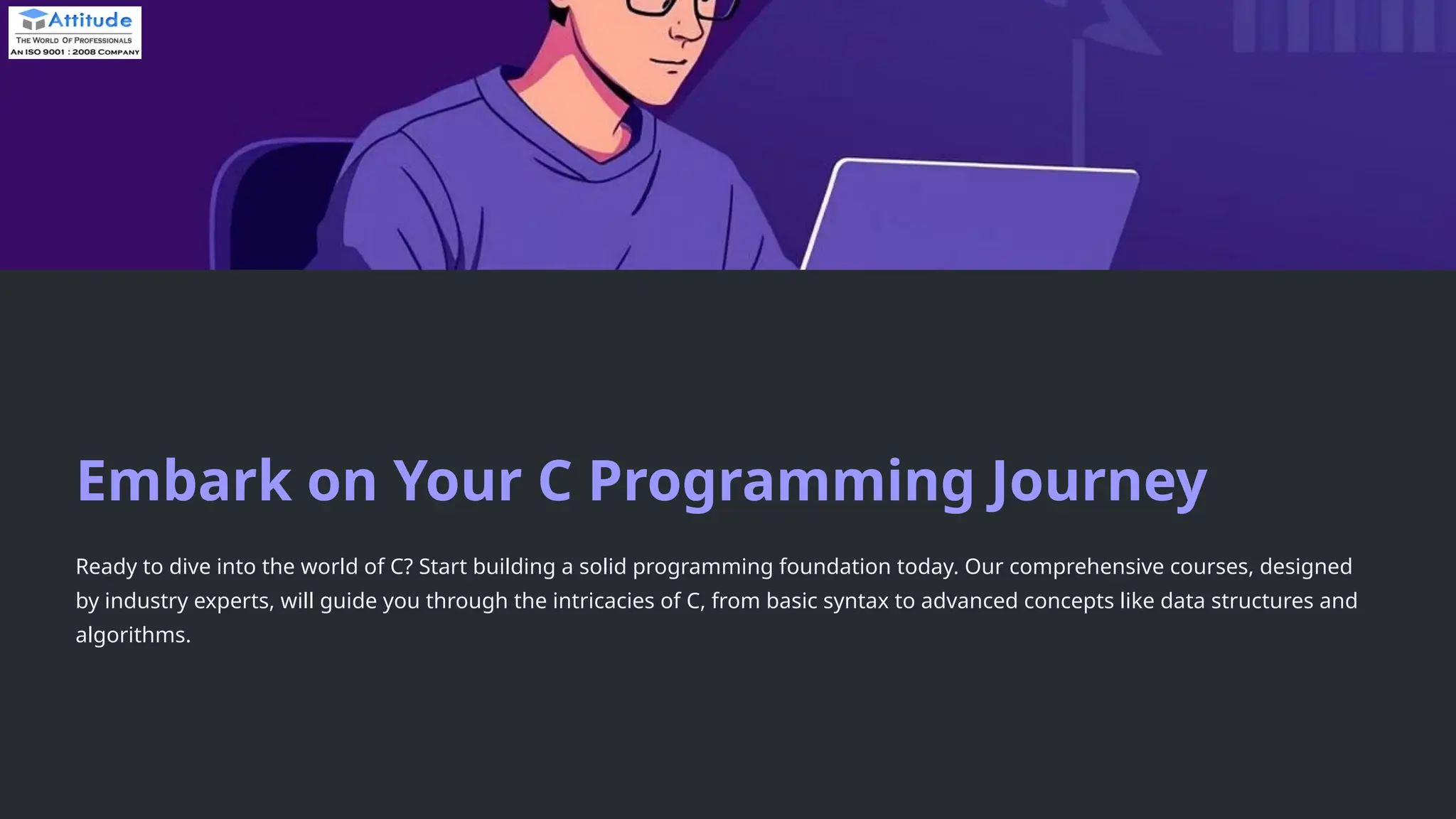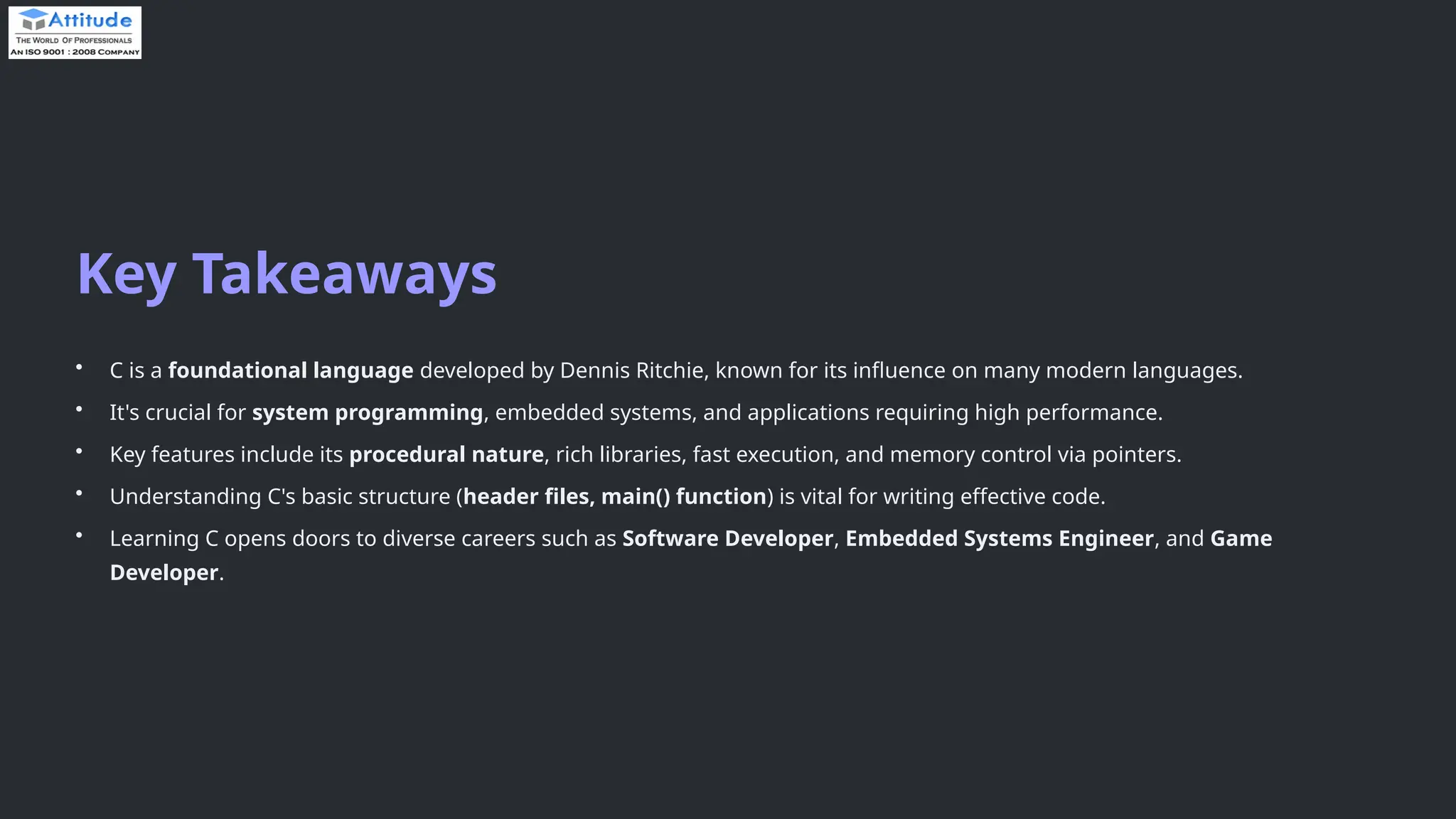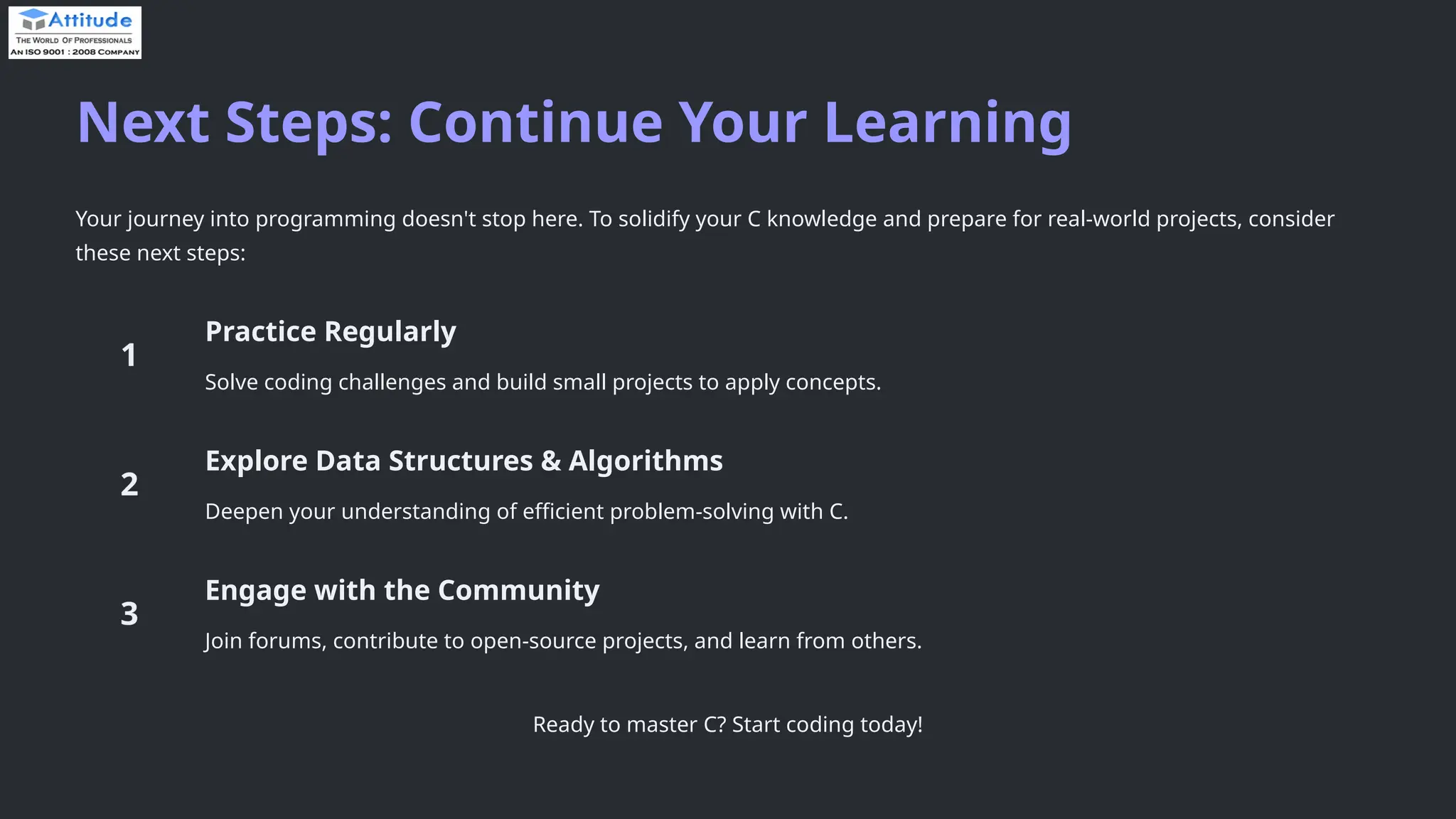Unlock the power of programming with our comprehensive presentation titled "Master the Fundamentals of C Programming Language". This highly informative PPT is designed for students, beginners, and job seekers who want to build a strong foundation in C programming, one of the most in-demand and evergreen programming languages in the tech industry. Inside, you’ll learn the basic concepts of C, including data types, operators, control statements, functions, arrays, pointers, and structures—everything you need to kickstart your journey in the world of coding. Whether you’re pursuing a career in software development, system programming, or embedded systems, mastering C is your first step toward success. This PPT is created by Attitude Tally Academy, a trusted name in IT and programming training. Ideal for learners looking for job-ready C programming skills, this presentation is packed with visuals, examples, and simplified explanations to make learning easy and effective. Download now and boost your programming knowledge, get industry-ready, and improve your chances of cracking coding interviews and tech placements!
